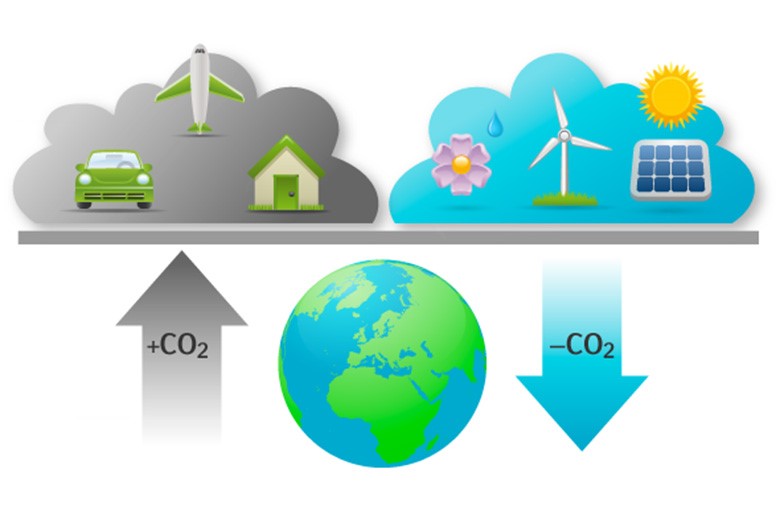
Công ty cổ phần công nghệ và tư vấn CIC

CIC Successfully Organizes Industry Seminar: “Digital Transformation Solutions for the Mining Sector”...

Bentley Technology Solutions – The Key to Unlocking Success in the World's...

Successfully Organize a Conference on the Application of Bentley's BIM/Digital Twin Solutions...

Net Zero: CIC Launches Greenhouse Gas Inventory Website

Bentley Energy Solution - A Comprehensive Solution for the Energy Sector
Nội dung chính
The Carbon Credit Market – Development Path in Vietnam
08/08/2023
Lượt xem 640
In recent years, carbon credits have been regarded as a new resource for Vietnam, particularly for the forestry sector. However, up to the present time, apart Quang Nam province which has been actively developing a forest carbon credit project, most businesses remain uncertain about this emerging market.
What is Carbon Credit?
A carbon credit is a certificate representing the right to emit one ton of carbon dioxide (CO2) or an equivalent amount of other greenhouse gases synthesized as 1 ton of CO2 equivalent (abbreviated as tCO2e). Currently, ries around the world are required to reduce greenhouse gas emissions in order to achieve common agreements under the United Nations Framework Convention on Climate Change (UNFCCC) and other international greenhouse gas agreements. This has led to the emergence of a demand for emissions trading, meaning that ries with excess emissions allowances can sell them to ries exceeding their committed targets, and vice versa. Since carbon (CO2) is the equivalent conversion of all greenhouse gases, these transactions are collectively referred to as carbon trading or carbon credit markets.
Following the Kyoto Protocol of the United Nations on climate change, adopted in 1997, the carbon market has experienced significant growth in European, American, and Asian ries. There are two main types of markets:
1. Mandatory Carbon Market: This market involves the buying and selling of carbon based on commitments made by ries within the UNFCCC framework to achieve greenhouse gas reduction targets. This market is compulsory and primarily pertains to projects under the Clean Development Mechanism (CDM), Sustainable Development Mechanism (SDM), or Joint Implementation (JI).
2. Voluntary Carbon Market: This market is based on voluntary agreements, either bilateral or multilateral, among organizations, companies, or nations. Purchasers of carbon credits engage in voluntary transactions to align with environmental, social, and corporate governance (ESG) policies and reduce their carbon footprint."
Global Carbon Markets
Formed in 2005, the EU carbon market is the world's first and largest emissions trading market. It includes all EU member states and three other European ries, imposing emission limits on over 11,000 energy-producing plants, as well as energy-intensive industrial facilities like steel, cement, ceramics, paper, and airlines with flights within Europe. Approximately 45% of the EU's total emissions are traded within this market. Hence, it is considered one of the EU's most significant tools for addressing climate change, fulfilling commitments the previous Kyoto Protocol and the current Paris Agreement.

Beyond the EU, China started discussing the establishment of a carbon market in its 2011-2015 Economic and Social Development Plan. Subsequently, China conducted pilot programs in various regions and cities with diverse economic profiles. On July 16, 2021, China's carbon trading market officially began operations to achieve its carbon neutrality goal by 2060.
The potential value of the Carbon Market is projected to surge during the period of 2030-2050 as ries are obligated to fulfill their emission reduction commitments. Within this market, industrialized nations like the United States, Canada, Japan, and Europe are expected to be the major buyers, while ries in Latin America, China, India, and Africa are anticipated to be key sellers. However, by the end of the 21st century, some current selling ries might transition into buyer roles.
Vietnam – Planning and Development 2025 Onward
Since 2012, Vietnam has actively participated and prepared for the establishment and development of its domestic carbon market, aiming to integrate with the region and the world. On January 7, 2022, the Government issued Decree No. 06/2022/NĐ-CP, which regulates the reduction of greenhouse gas emissions and the protection of the ozone layer. This decree outlined a clear roadmap for the development and implementation of the domestic carbon market.
During the period until the end of 2027, the following actions will take place:
- Development of regulations for managing carbon credits, emissions trading limits, and carbon credit exchanges.
- Establishment of operational rules for the carbon credit trading platform.
- Implementation of pilot mechanisms for carbon credit exchange and offset in potential sectors, along with guidance on the implementation of these mechanisms, both domestically and internationally, in line with the ry's laws and international agreements as Vietnam is a member of.
- Establishment and operation of the pilot carbon credit trading platform starting 2025.
- Implementation of activities to enhance capabilities and raise awareness about carbon market development.
Starting 2028, the following steps are planned:
- Official operation of the carbon credit trading platform in 2028.
- Establishment of regulations for linking and exchanging carbon credits domestically with regional and global carbon markets.

As of now, Vietnam is in the process of refining regulations related to the carbon market. By 2028, the carbon credit trading platform is expected to be fully operational. The Ministry of Finance and the Ministry of Natural Resources and Environment are actively working to carry out necessary tasks to establish the carbon credit market in Vietnam.
Assoc. Prof. Dr. Nguyen Hong Quan, Director of the Institute for Circular Economy Research, Ho Chi Minh City National University, stated that the institute is collaborating with several international organizations to study and propose solutions for this matter. "All parties are making efforts to conduct in-depth research within the next 1-2 years to collaborate with relevant departments in providing specific guidelines for businesses and localities," Assoc. Prof. Dr. Nguyen Hong Quan noted.
The construction and operation of the carbon market are expected to contribute to enhancing greenhouse gas emission reductions, promoting low-emission technology development, and improving the competitive capacity of businesses.
